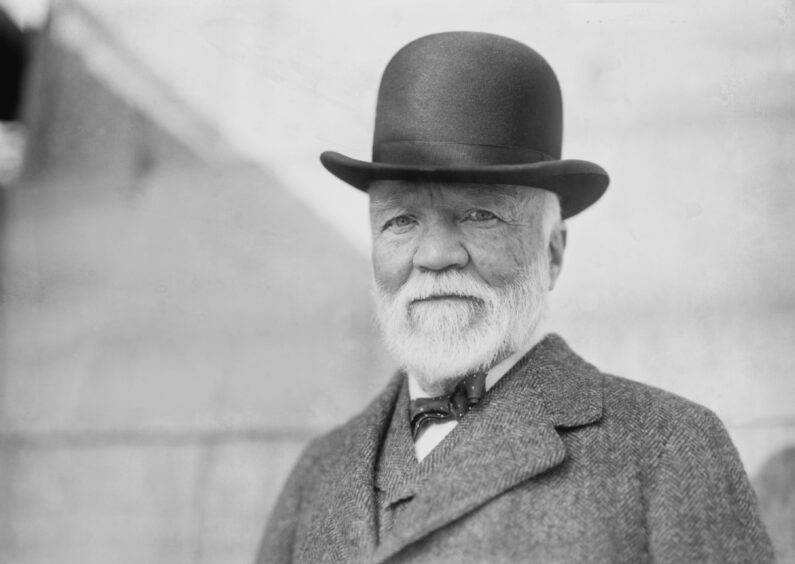You only have to look to Scotland’s past to quickly realise how much entrepreneurship and innovation is steeped in our contributions to the world.
From Andrew Carnegie and Alexander Graham Bell to Arnold Clark and Walker’s Shortbread, taking risks and driving change has been at the core of many of Scotland’s great success stories.
In recent times it has understandably been a difficult prospect for many to consider starting up their own business. The impact of the Covid-19 pandemic, continued economic uncertainty and rising costs of trading have all contributed to people having less confidence to start a business.
Startling survey findings
A recent survey by Strathclyde University illustrates this hesitation.
The Global Entrepreneurship Monitor 2022-23 found emerging gaps in the entrepreneurial pipeline, with a drop in youth entrepreneurship and a reduction in interest for entrepreneurship as a career option.
We are also lagging the overall UK average and further behind when it comes to women starting a business in Scotland.
The survey showed total early-stage entrepreneurial activity (TEA) – the sum of the nascent entrepreneurship rate and new business owner-manager rate – was 8.8% in Scotland, against a UK average of 11%, in 2022.
This is down from 9.5% in 2021, which means TEA rates in Scotland have remained broadly the same between 2020 and 2022 but have still seen slight regression.
At the same time, while the female-to-male TEA ratio in Scotland remains unchanged from 2021 at 68%, the UK ratio increased from 73% to 79%.
This suggests more women are starting businesses in the rest of the UK, compared to Scotland.
Today’s most likely new entrepreneurs revealed
Ethnic minorities continue to show a stronger association, with TEA rates double that of the white population at 17%, compared to 8.5% in 2022.
And the growth in non-white rate means Scotland is now on a par with the UK average.
TEA rates continue to be driven by younger people in the 18-24 age group, despite a three percentage point drop from 13.3% in 2021 to 10.4% in 2022.
The survey also found low confidence continues to be a barrier among non-entrepreneurial adults in Scotland, with six in 10 indicating fear of failure as a reason for not striking out on their own.
Just 40% of Scots have the confidence to start businesses
The most concerning stat for me is that only four out of 10 people in Scotland believe they have the skills, knowledge and experience to start a business, with only the north-east of England lower at 30%.
For a country that normalised entrepreneurship as a career option, these facts paint a worrying picture – that many Scots have a lack of confidence to start their own business.
If we are to restore that confidence and showcase Scotland as an attractive start-up nation, fit for inward investment and ready for the jobs of the future, then we must look at the environment in which to start and grow a company.
We must look at each stage of the process that our young people will go through before they seriously consider starting their own business.
For a country that normalised entrepreneurship as a career option, these facts paint a worrying picture – that many Scots have a lack of confidence to start their own business.”
The first step is education. Its role in this context is to normalise entrepreneurship as a career path, equipping people with the interest and skills to consider either starting or joining an early-stage business. We don’t sufficiently expose young people to entrepreneurial thinking and technique.
We need more specialised entrepreneurial education programmes in schools and universities that teach vital skills such as business planning, marketing, financial management and leadership.
Inspiration for budding young entrepreneurs is invaluable
Providing practical training and knowledge can equip young people with the necessary tools to start and run their own businesses.
The work of Young Enterprise Scotland (YES) has been one of the very few examples to note of connecting the early education sector to the private sector.
YES runs a variety of enterprise and entrepreneurship programmes for young people aged five to 30 in primary and secondary schools, further education colleges, universities, prisons, and secure and residential units, as well as with community groups.
We should continue to encourage established businesses to collaborate with young entrepreneurs by offering partnerships, joint ventures, or incubator programmes. This can provide access to resources, expertise and infrastructure, creating a supportive environment for start-ups.
A good example of this is the Future Chamber programme at Ayrshire Chamber of Commerce, where business owners under 35 and based in Ayrshire who have been trading for two years receive one year’s free membership of the chamber’s services.
Confidence is key
We do need to better join up the landscape that helps facilitate entrepreneurship. This includes government and its agencies, alongside the private sector.
A common model for incentivising and supporting entrepreneurship is how we instil confidence in young people, women and ethnic minorities to consider the world of business.
To fully realise the potential of aspiring entrepreneurs and support them to contribute to Scotland’s future growth and innovations, we must pull out all the stops.
Liz Cameron is chief executive of the Scottish Chambers of Commerce.




Conversation